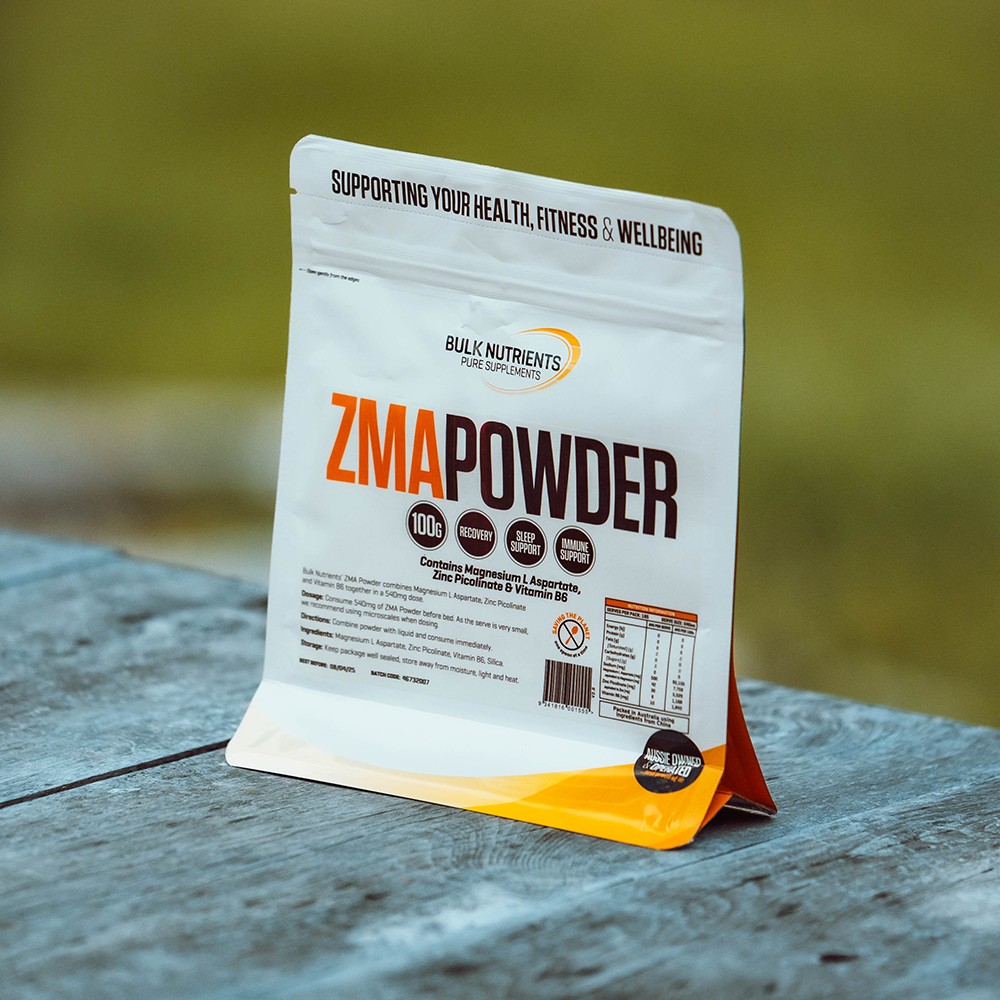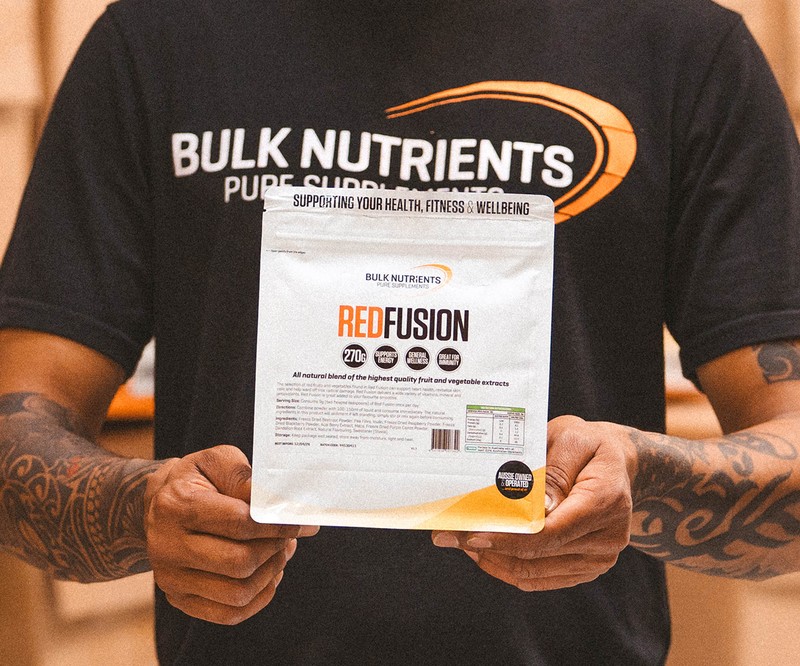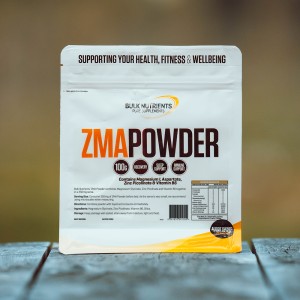ZMA for Improved Health, Immunity and Sleep

Why Take ZMA?
When taken daily, ZMA has been shown to bolster health, increase immunity and improve sleep. For anyone who trains hard, these three key factors are vital for effective recovery and achieving results.
Zinc is an essential mineral with powerful antioxidant properties that stimulate the activity of many enzymes in the body. As an antioxidant, it will enhance your health and support a strong immune system, including reducing the incidence of colds and flu.
Zinc also has an important role to play in muscle-building, with zinc being a key enzyme stimulator of muscle protein synthesis (arguably the most important factor in building lean muscle). Zinc supplementation has also been shown to improve resting and post-exercise testosterone levels, which again is an important factor in building muscle.
Like Zinc, Magnesium is also an essential mineral involved in over 300 key chemical reactions within the body. Magnesium also plays an important role in the health of the cardiovascular system, metabolic rate and bone health. Anecdotally, Magnesium is also consistently reported as improving sleep quality.
Looking for a good night's sleep for recovery keep in mind the 90-minute sleep cycle method.
When you exercise, you tend to lose a lot of Zinc and Magnesium through sweat, particularly in hot climates. With research showing most athletes are deficient in Zinc and Magnesium, Bulk Nutrients ZMA is vital for performance and health benefits.

How to Take ZMA
ZMA works best taken as a single dose just before bed.
To maximise absorption and its intended effects, it is recommended to take ZMA on an empty stomach and not with food.
References:
- Fang, X., Wang, K., Han, D., He, X., Wei, J., Zhao, L., Imam, M., Ping, Z., Li, Y., Xu, Y., Min, J. and Wang, F., 2016. Dietary magnesium intake and the risk of cardiovascular disease, type 2 diabetes, and all-cause mortality: a dose–response meta-analysis of prospective cohort studies. BMC Medicine, [online] 14(1). Available at: Dietary magnesium intake and the risk of cardiovascular disease, type 2 diabetes, and all-cause mortality: a dose–response meta-analysis of prospective cohort studies.
- Kilic M., 2007. Effect of fatiguing bicycle exercise on thyroid hormone and testosterone levels in sedentary males supplemented with oral zinc. Neuro Endocrinol Lett, [online] 28(5):681-685. Available at: Effect of fatiguing bicycle exercise on thyroid hormone and testosterone levels in sedentary males supplemented with oral zinc.
- McDonald, R. and Keen, C., 1988. Iron, Zinc and Magnesium Nutrition and Athletic Performance. Sports Medicine, [online] 5(3), pp.171-184. Available at: Iron, Zinc and Magnesium Nutrition and Athletic Performance.
- Sazawal, S., Black, R., Jalla, S., Mazumdar, S., Sinha, A. and Bhan, M., 1998. Zinc Supplementation Reduces the Incidence of Acute Lower Respiratory Infections in Infants and Preschool Children: A Double-blind, Controlled Trial. Pediatrics, [online] 102(1), pp.1-5. Available at: Zinc Supplementation Reduces the Incidence of Acute Lower Respiratory Infections in Infants and Preschool Children: A Double-blind, Controlled Trial.
- Shankar, A. and Prasad, A., 1998. Zinc and immune function: the biological basis of altered resistance to infection. The American Journal of Clinical Nutrition, [online] 68(2), pp.447S-463S. Available at: Zinc and immune function: the biological basis of altered resistance to infection.
Related Blogs

The Complete Guide to Green and Red Fusion
Posted by Bulk Nutrients
Estimated reading time: 13 minutes

Probiotics and How They Promote Gut Health
Posted by Bulk Nutrients
Estimated reading time: 8 minutes

The Three Pillars of Health: Your Guide to Goal Setting!
Posted by Ben Disseldorp
Estimated reading time: 10 minutes














































